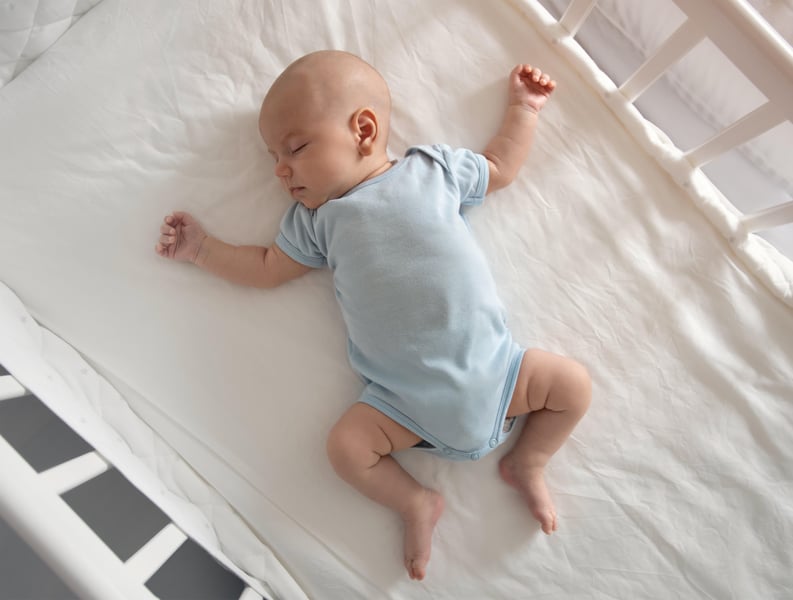(330) 876-1228
8507 Main StreetKinsman, OH 44428
(330) 876-1229

When putting baby to bed, skip the cozy comforters, stuffed animals and pillows.
The U.S. Consumer Product Safety Commission (CPSC) says bare is best -- just a sheet. And, it urges, always put baby down for a rest in products specifically designed for their sleep, including cribs, bassinets and play yards.
"What is comfortable for the way adults sleep, isn't safe for babies,"said CPSC chair Alex Hoehn-Saric. "Bare is best -- a firm, flat surface in a crib, bassinet or play yard, without blankets, pillows or other items. If you are worried about your baby getting cold, use warm pajamas -- not blankets."
The warning dovetails with Baby Safety Month (September).
Most infant deaths related to nursery products happen in a cluttered sleep space, according to the CPSC.
Between 2016 and 2018, 87 infant deaths nationwide were associated with cribs, playpens/play yards, and bassinets/cradles. Most were associated with the presence of extra bedding, such as pillows, blankets or comforters, the CPSC said in a news release.
Along with a bare sleeping space without bumpers, parents and caregivers should always put babies on their backs when they lay them down, the CPSC said. This reduces the risk of sudden unexpected infant death syndrome (SUID/SIDS) and suffocation.
Inclined products, which were associated with eight deaths between 2016 and 2018, should never be used for infant sleep, the commission said. These include rockers, gliders, soothers and swings.
Infants should not be left in these products without supervision, the CPSC said. They should always be restrained. No soft bedding should be used in these products because they pose a suffocation risk.
The safest place for babies to sleep is a firm, flat crib, bassinet, play yard or bedside sleeper. They should be moved into one of those if they fall asleep in a swing, bouncer, lounger or similar product, the commission said.
More information
Nationwide Children's Hospital in Columbus, Ohio, has more tips to keep babies and toddlers safe.
SOURCE: U.S. Consumer Product Safety Commission, news release, Sept. 15, 2022
